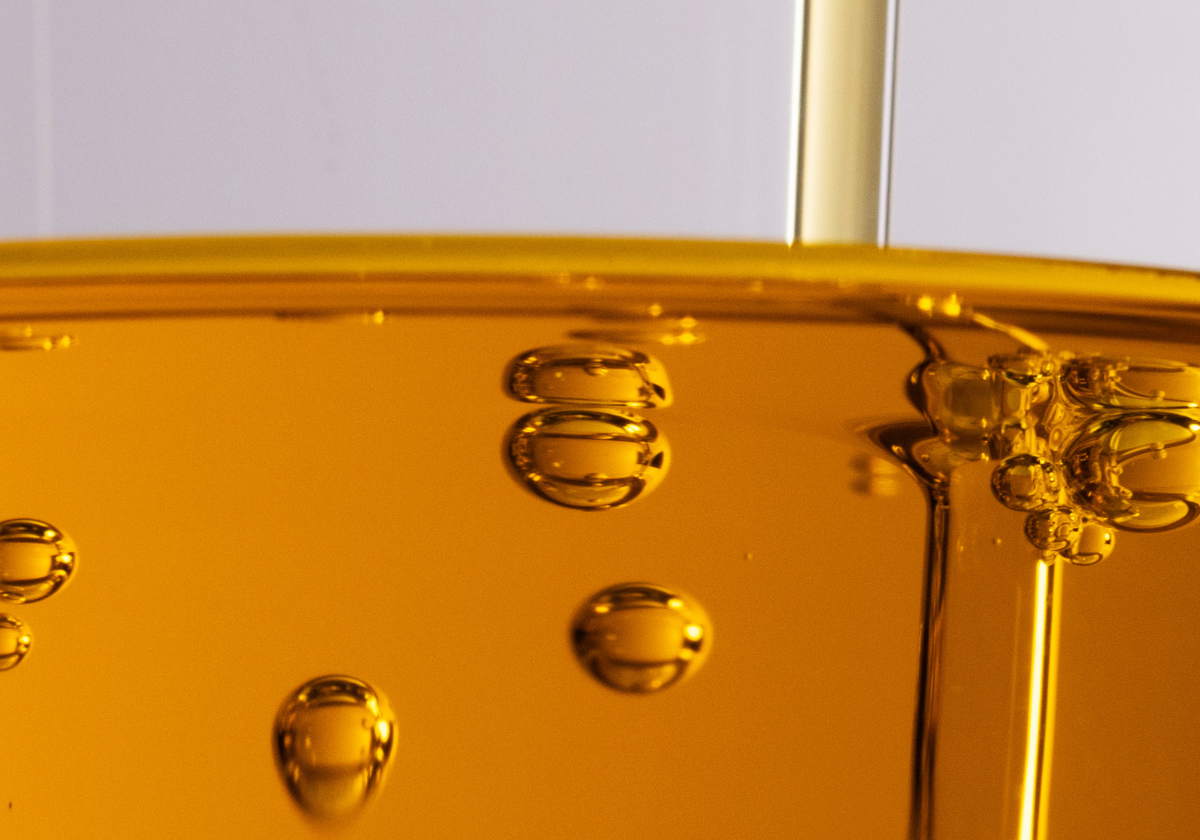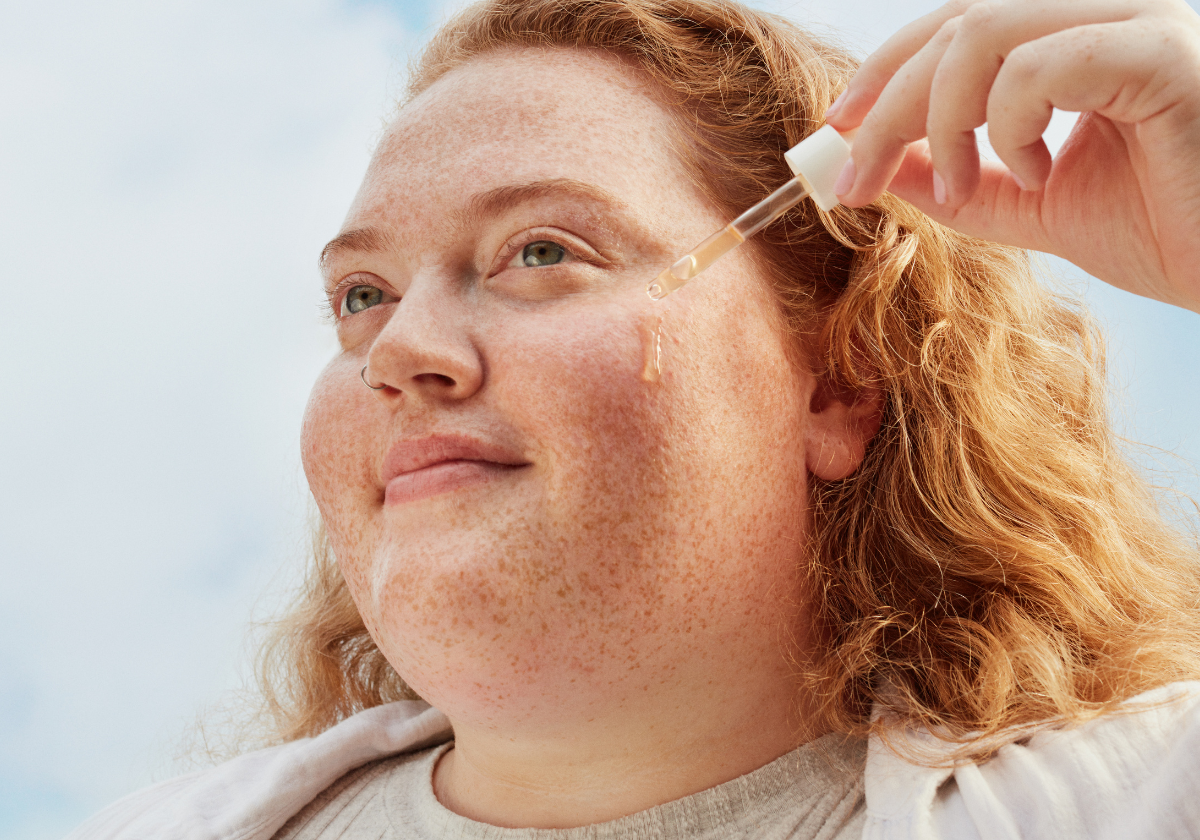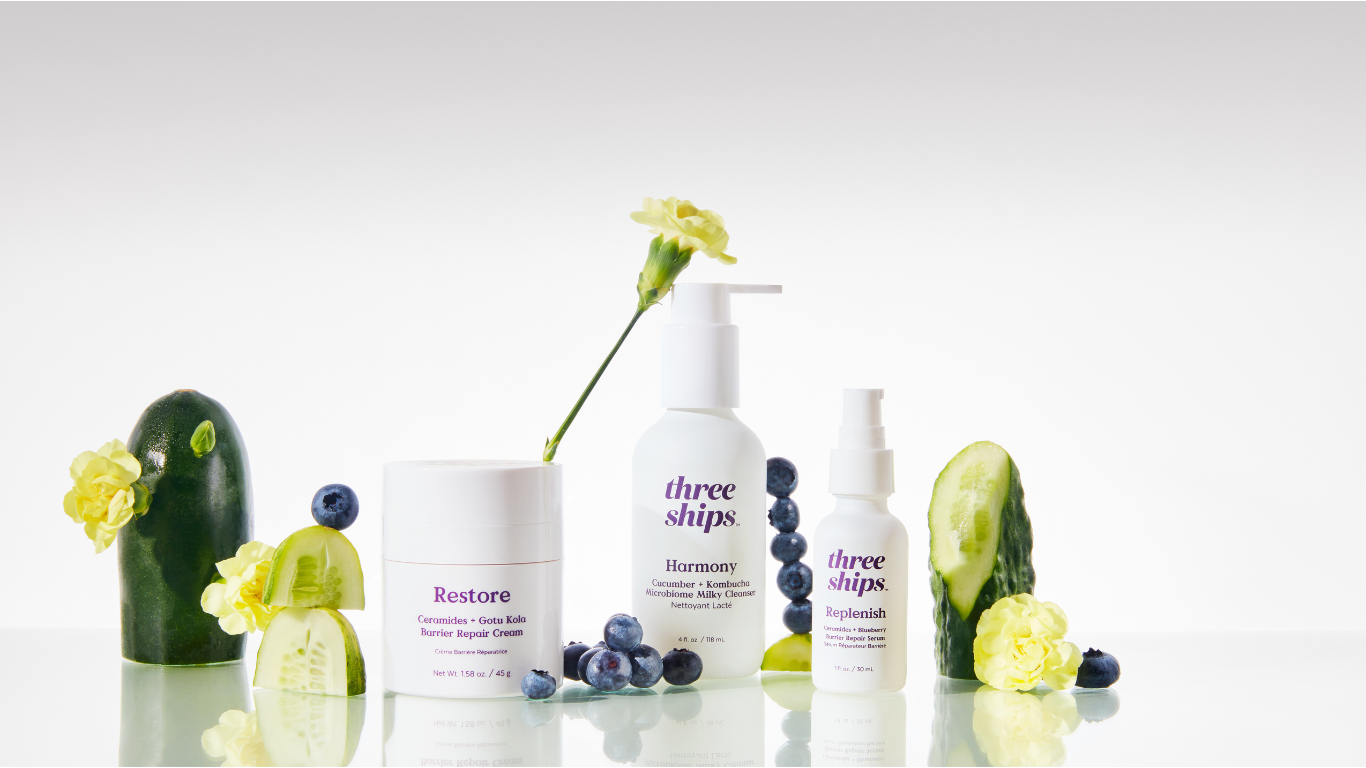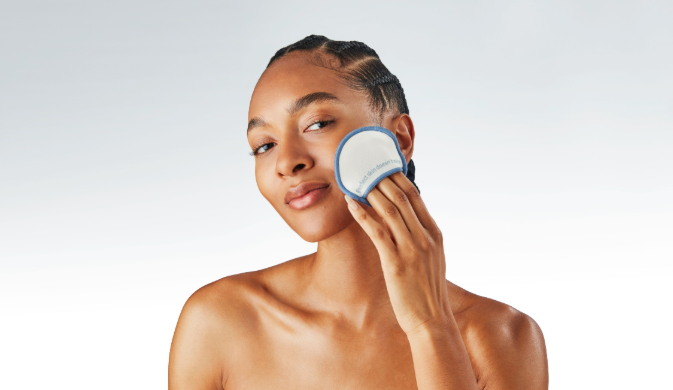Physical Exfoliation vs Chemical Exfoliation: What's the Difference?
You’ve heard that exfoliating is a crucial part of any skincare routine but it’s also important to understand why it’s beneficial and what the difference is between physical and chemical exfoliation. Here’s your cheat sheet to choosing the perfect exfoliator for your routine.
Our Fresh Start™ Lime Pearl + Prickly Pear 5% PHA Resurfacing Treatment contains plant-based chemical exfoliants and is gentle enough to be used daily as an exfoliating and toning treatment.
Our Superfruit Lactic + Multifruit 8% AHA Exfoliating Mask contains both chemical and physical exfoliants, and makes the perfect product for any skin type. We like to call it our 'facial in a jar'.
Chemical Exfoliation

How It Works
Chemical exfoliation involves the use of acids or enzymes to dissolve the bonds between dead skin cells and healthy skin. This encourages the shedding of old skin cells which reveals the newer, more radiant skin beneath, giving you healthy, glowing skin.
Types of Chemical Exfoliants
Alpha Hydroxy Acids (AHAs):
The most commonly used AHAs and includes Glycolic, Lactic, Citric, and Malic acids. These are water-soluble and work on the skin's surface, improving texture and brightness. AHAs increase the cell renewal rate and have been found to promote smooth, healthy-looking skin.
Our Superfruit Exfoliating Mask contains Lactic Acid and Fruit Blend AHAs, and utilizes this natural formulation to achieve an effective yet gentle exfoliating formula.
Beta Hydroxy Acids (BHAs):
BHAs are oil-soluble and penetrates into pores. They work deep within the skin to unclog pores, making them particularly effective for treating acne, blackheads, and other pore-related concerns. The most popular BHA is Salicylic Acid, which can be found in our Refresh Papaya + Salicylic Acid Cleanser
Poly-Hydroxy Acids (PHAs):
PHAs are the water-soluble, gentle giants of chemical exfoliation since they have a larger molecule size, which allows them to enter the skin at a slow, steady pace. PHAs are a great option for those starting out with chemical exfoliation or for those with sensitive skin.
Our Fresh Start™ Lime Pearl + Prickly Pear 5% PHA Resurfacing Treatment contains a combination of Prickly Pear PHA and Lime Pearl (a natural source of AHAs) to visibly brighten and smooth out skin texture.
 Benefits
Benefits
- Gentle: Chemical exfoliants are generally gentler on the skin compared to physical exfoliants, making them suitable for various skin types, including sensitive skin.
- Targets Specific Concerns: AHAs, BHAs, and PHAs can address a range of issues such as uneven skin tone, fine lines, acne, and overall skin texture.
- Customizable: You can choose the strength and type of acid based on your skin's needs.
Considerations
Start with a lower strength product if you're new to chemical exfoliation to avoid irritation. Always follow the product's instructions and use sunscreen daily, as exfoliated skin can be more sensitive to UV damage. Over-exfoliation can lead to skin irritation, so be mindful of the frequency and concentration of exfoliants you use.
Physical Exfoliation
How It Works:
Physical exfoliation, as the name suggests, physically removes dead skin cells from the skin's surface through abrasive materials, ingredients or tools. This method provides immediate smoothness and a refreshed appearance.
Types of Exfoliants:
Scrubs
Often containing granular particles like sugar, salt, crushed nut shells, or microbeads.
Our Superfruit Exfoliating Mask also contains physical exfoliating properties, namely Rice Powder, a natural exfoliating ingredient manufactured from rice seeds. Given their shape and texture, they effectively exfoliate without irritating the skin. The light-yellow powder is moisturizing and has emollient properties as well, leaving you with soft and silky skin.

Brushes and Sponges
Tools designed for manual exfoliation, such as facial brushes and konjac sponges.
Benefits
- Immediate Results: Physical exfoliation can instantly reveal smoother, brighter skin.
- Ideal for Dry Skin: It can be beneficial for those with dry or flaky skin, as it removes surface flakes and makes room for new cells to resurface.
Considerations:
Be cautious not to be too aggressive or frequent with physical exfoliation, as it can lead to skin irritation, microtears in the skin barrier, and increased sensitivity. Physical exfoliation should be done less frequently compared to chemical exfoliation to avoid over-exfoliation.
If you liked this article, you may also like Everything You Need to Know About Our Superfruit Lactic Acid + Multifruit 8% AHA Exfoliating Mask and The Exfoliating Benefits of Rice Powder
0 comments





